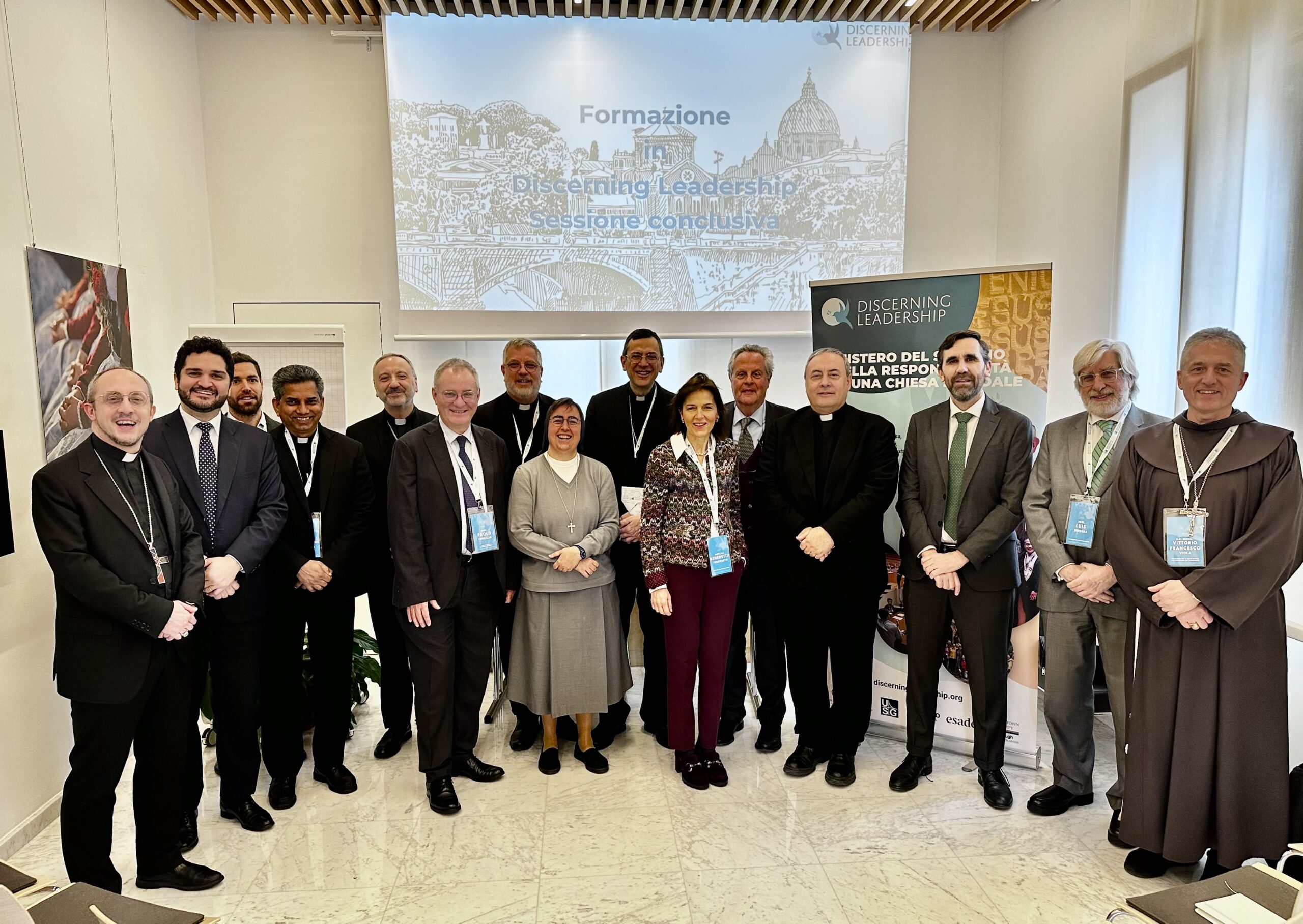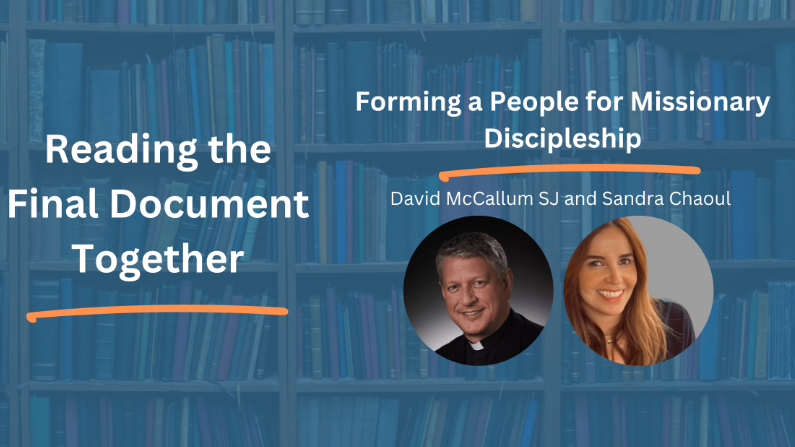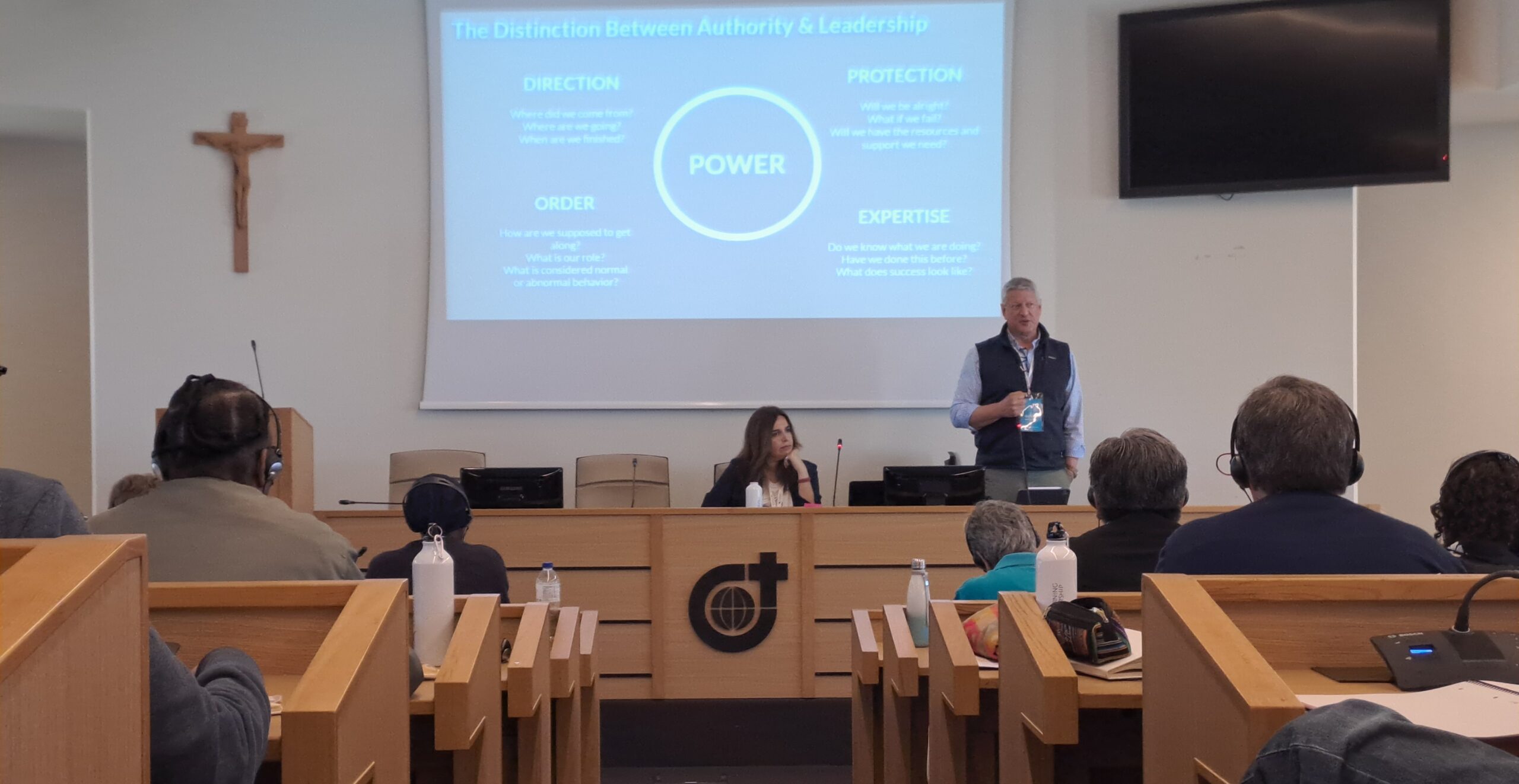On Saturday, June 24th, a group of DL alumni from various religious and lay organizations as well as 4 Vatican congregations/secretariats, gathered with the Discerning Leadership team at Villa Aurelia for an in-person alumni reunion. The intention of the gathering was to introduce a transformative lens—a new organizational diagnosis map—that would enhance participants’ understanding of the systemic nature of organizations and offer various areas of inquiries to help participants lead change in a discerning, synodal, and mission-driven manner. The day was designed to provide a space for prayer, personal reflection and integration in small groups and plenary, helping to deepen participants’ sense of community and resource them for their mission.
Just before 9 am, participants began gathering in the Chapel to ground themselves in God’s presence and calling. Following a moment of introduction, prayer and sharing, the DL team introduced participants to the framework of the organizational map, a faith-based lens/tool for perceiving with a new perspective the organizational reality of their congregations/organizations. This map is a result of collaborative work led by DL Faculty members Christina Kheng and Anjet Van Linge.
The map explores various significant aspects of organizational life:
- The collective sense of purpose and vocation, known as the charism (the WHY)—the organization’s God see.
- It further delves into exploring the community at the heart of the organization (the WHO) and the people’s unfolding story. It also invites an exploration of the way leadership is embraced and enacted in organizations as well as the way the organizational culture unfolds.
- Among the various territories covered by the map is the organization’s mission and strategic objectives (the WHAT),
- as well as the systems, policies, procedures, resources, and capabilities necessary to manifest the organization’s purpose and mission while responding to the world’s needs (the HOW).
- The framework also invites participants to consider the context in which their organizations serve (the WHERE), the diverse stakeholders involved, and the impact they have in the world.

As the various layers of the organizational diagnosis map were presented and unpacked during the session, participants were invited into a stance of discerning listening. With their own organizations in mind, they were asked to identify where life is growing in their organizations, what invitations for development arise following this map, and what inquiries seem most relevant to explore as they contemplate their organizations.
The importance of discerning God’s presence and Spirit at all levels of organizations was emphasized as a key take-away.
The framework generated rich discussions among the group. The tool helped foster a shift from a compartmentalized view to an integral understanding of organizations while fostering awareness of God’s divine presence at every level. Participants shared that the map helped them perceive their organizations as living realities and open systems, acknowledging the existence of healthy tensions and the invitation to integrate and harmonize various aspects. The importance of discerning God’s presence and Spirit at all levels of organizations was emphasized as a key take-away. Drawing from their lived experience, participants recognized that coherence and alignment among these organizational elements was crucial: each element influencing the others. Guided by the organization’s charism, integration work leads to fruitfulness and flourishing, while incoherence among the elements inevitably causes tension and exhaustion.

Following the presentation of the framework, participants engaged in a moment of silent prayer and reflection, paving the way for an Emmaus walk—an opportunity to share their insights in pairs. The gathering continued with a convivial lunch and an informal space for the group to deepen their connections and sustain meaningful conversations. The afternoon focused on drawing implications from the framework and designing actionable next steps. In small groups, participants brainstormed some experiments they intended to bring back to their own systems and received feedback and affirmations from fellow group members.
As the day drew to a close, members of the group gave thanks to the energy and hope that their discussions and collective work facilitated and renewed their desire to continue the reflection in similar settings.
The date of the next alumni gathering and the publication of a white paper detailing the organizational diagnosis map will be announced in the fall.




